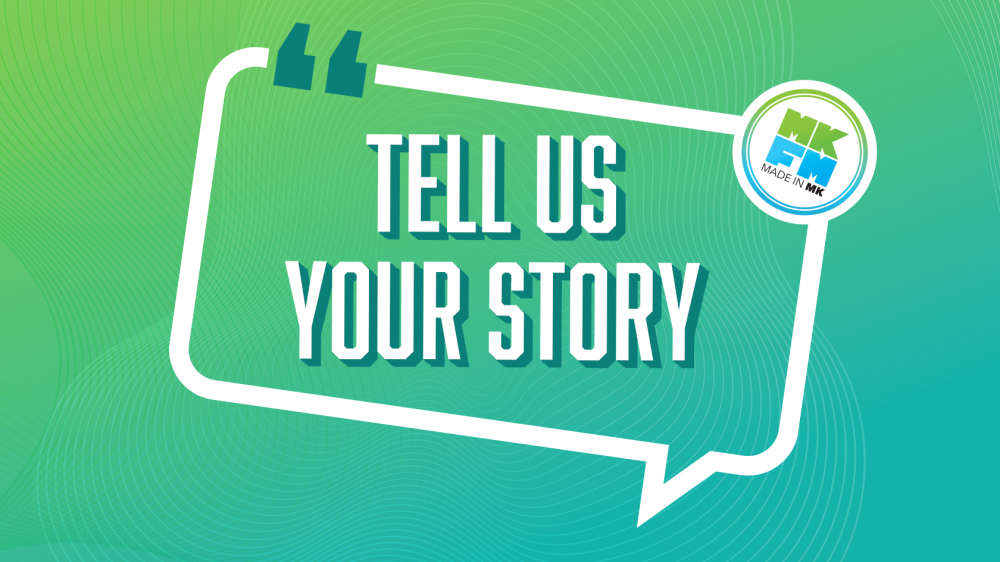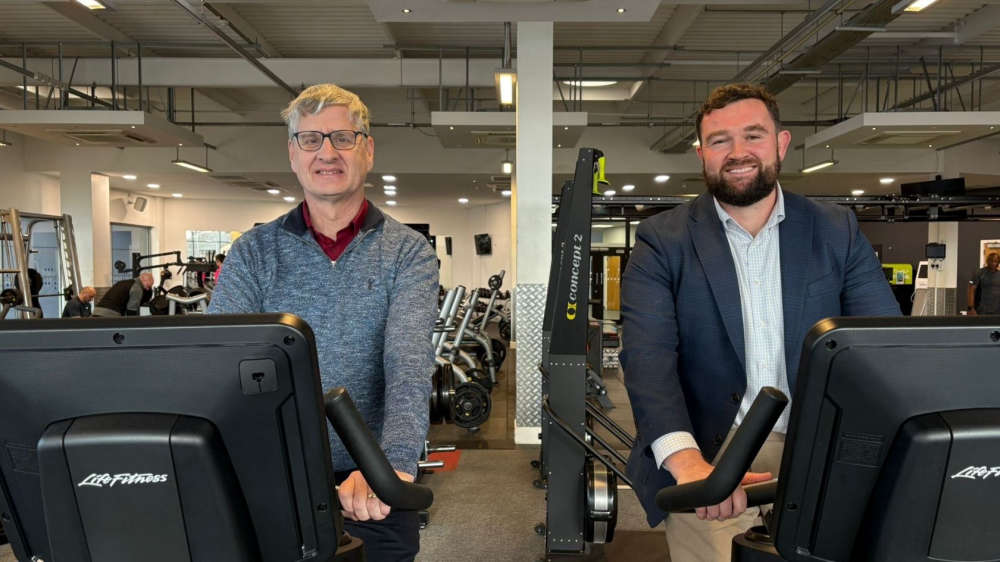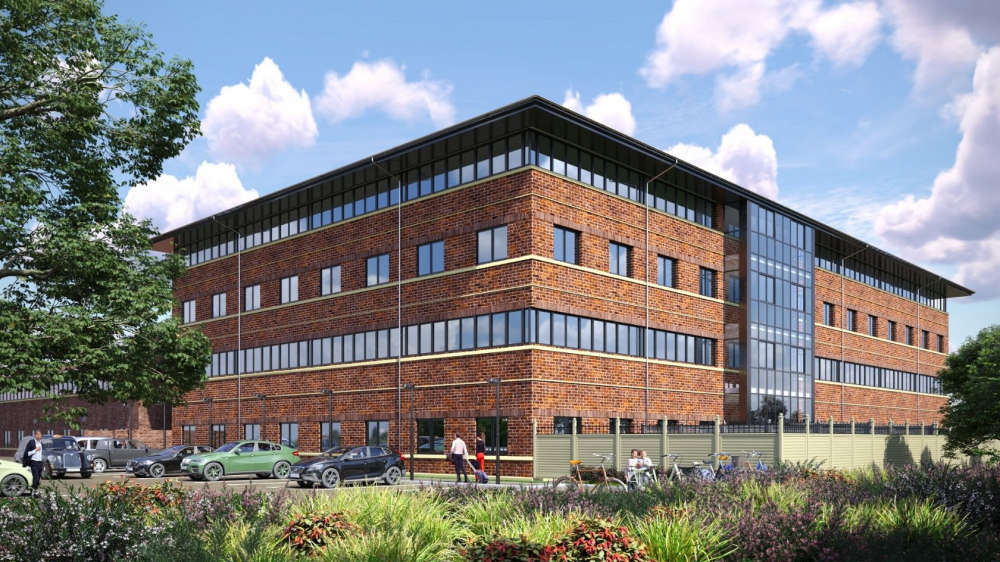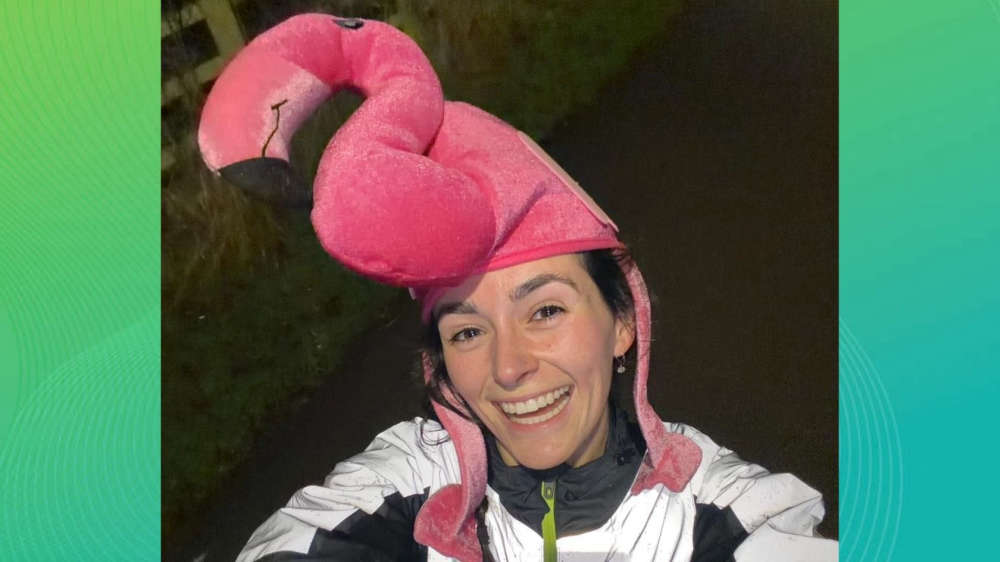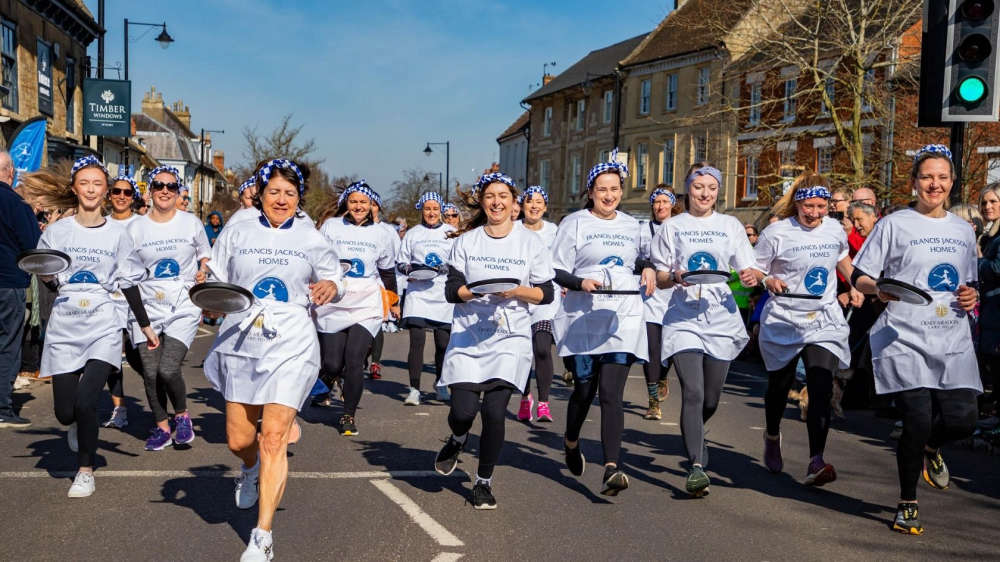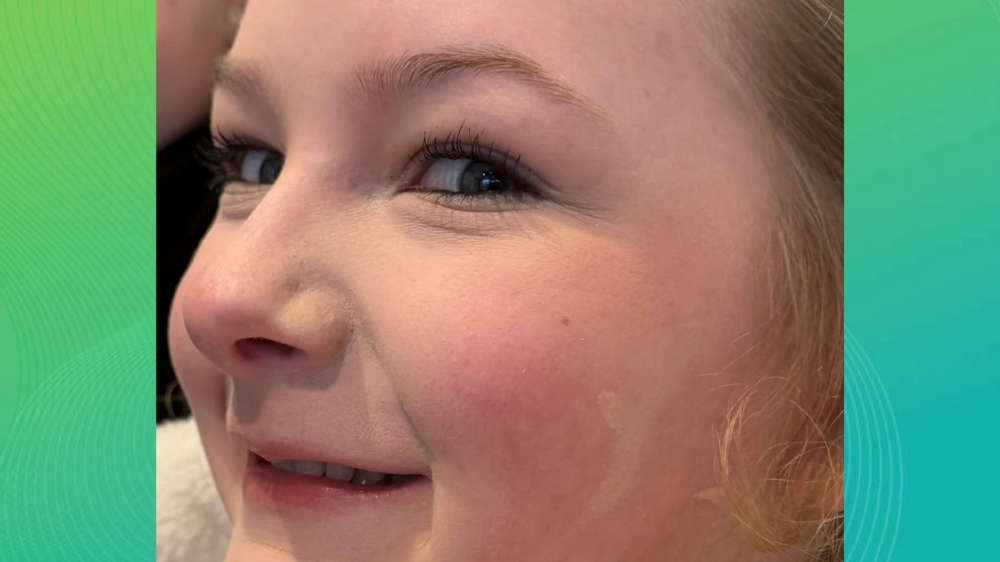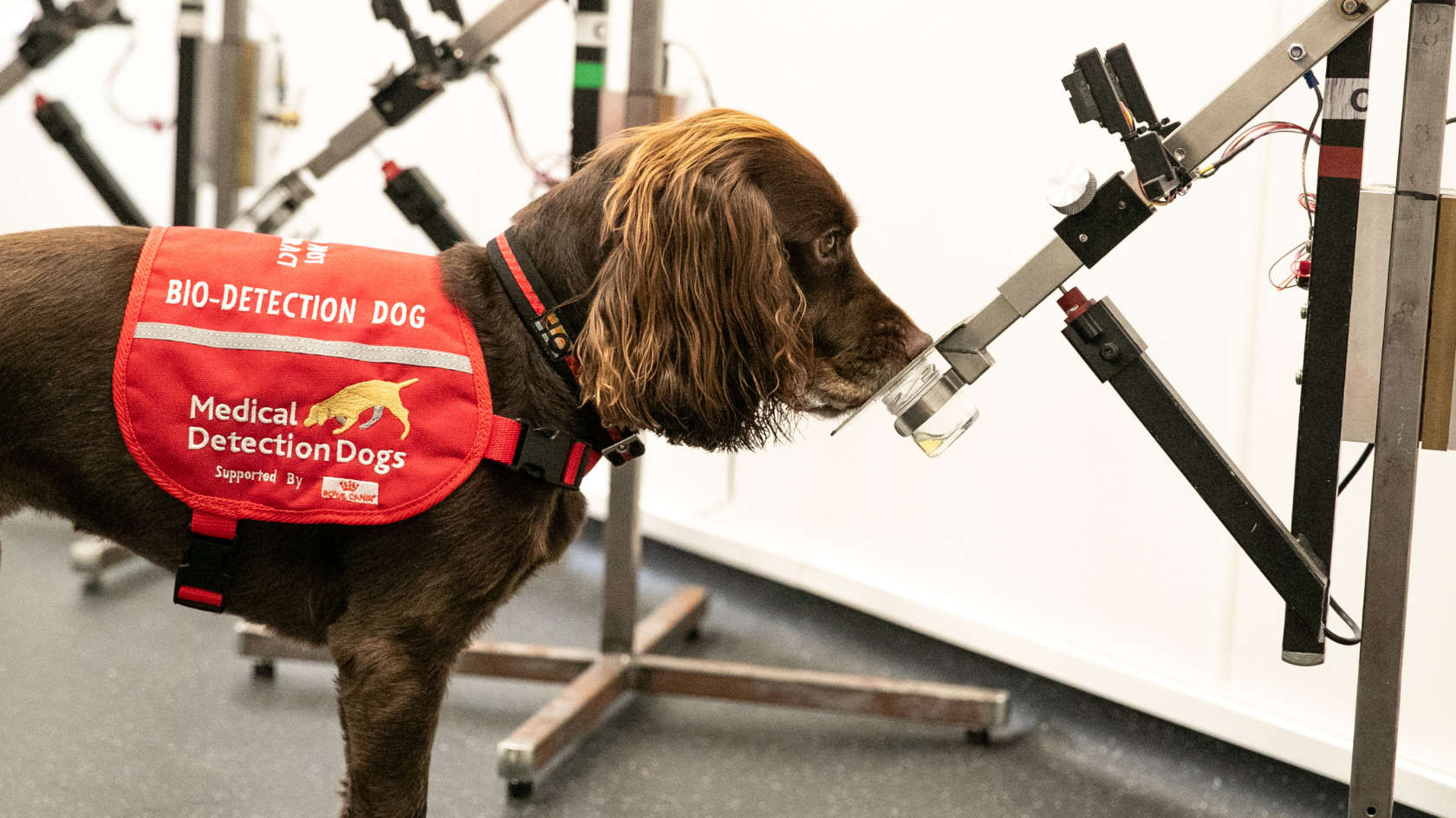
Medical Detection Dogs launches urgent appeal to raise funds to train bowel cancer detection dogs.
- Charity is UK first to train dogs to detect the smell of bowel cancer in urine
- Someone gets diagnosed with bowel cancer every 15 minutes in the UK
- The stigma and embarrassment of providing a poo sample is often a barrier to going for screening
- Early detection could save many lives
- Now it needs to raise £130,000 to help make this research a reality
- Funding will lead to more rapid development of ‘e-nose’ technology
Medical Detection Dogs is today (Monday June 9th 2025) launching an urgent appeal to raise the funds needed for the next stage of its bowel cancer detection dogs project.
The charity is investigating whether man’s best friend could help deliver an accurate, non-invasive and more sensitive method of early-stage bowel cancer detection that could both increase uptake of the screening and improve health outcomes.
In a UK first, Medical Detection Dogs will use urine samples instead of faecal samples. Due to the invasive nature of the colonoscopy screening process and the stigma and embarrassment of providing a faecal sample, only just over half of those offered the screening will take it up. The less invasive faecal sampling is not very specific and patients often still require a colonoscopy.
Bowel cancer is the fourth most common form of cancer in the UK with a diagnosis every 15 minutes. 46 people die every day from the disease. It's the 2nd leading cause of cancer deaths.
The survival rate is around 60% and many of those not cured present with advanced disease - reflecting how hard it is to diagnose.
Early detection could help save the lives of many people with this type of cancer.
7 dogs - Hetty, Willow, Jodie, Rosie, Mango, Callie, and Dotty - have been in the charity’s training room learning the odour of bowel cancer in urine samples for the past few weeks and early signs show the dogs are very accurately able to detect it.
Now, the charity needs to keep the momentum going and carry out double-blind testing so it has a robust set of scientific results to help this research become a reality.
It needs to raise £130,000 for this stage of the project.
Medical Detection Dogs is applying the same tried and tested methodology that has previously proved that dogs can accurately detect the odours of prostate cancer and bladder cancer, in peer-reviewed trials.
The dogs have also successfully detected the odour of a number of other diseases such as Parkinson’s disease, Pseudomonas and COVID-19.
This project is the first time Medical Detection Dogs has used interactive stands in a project. Developed alongside colleagues at the Open University, they will help the dogs’ trainers learn even more than just whether they get it right each time they sniff.
This information is critical for the next stage of development of a non-invasive urine test through informing AI of the odour signature strength in each sample which will lead to the more rapid development of e-nose technology.
Each stand has two sensors to monitor the dogs’ engagement with the samples on the end: a proximity sensor that records the duration of time the dog spends investigating each sample position, and a pressure sensor that quantifies the level of physical interaction at each location. Time spent near each sample may reflect interest or uncertainty, while pressure indicates the intensity of interaction. Together, these measures help differentiate between confident choices, exploratory behaviour, and uncertain or incorrect responses.
Claire Guest, Chief Scientific Officer and CEO of Medical Detection Dogs, says: “The dogs have shown us time and again that diseases have an odour they can detect and we are certain that bowel cancer will be the same.
“In collaboration with quantum physicist, Andreas Mershin, we could assist in the development of a fast, accurate and non-invasive method of early diagnosis using urine which would encourage more people to go for screening and help save lives.
“We now urgently need help raising the awareness and funds to help us achieve this and hope people will be able make a donation however large or small.”

